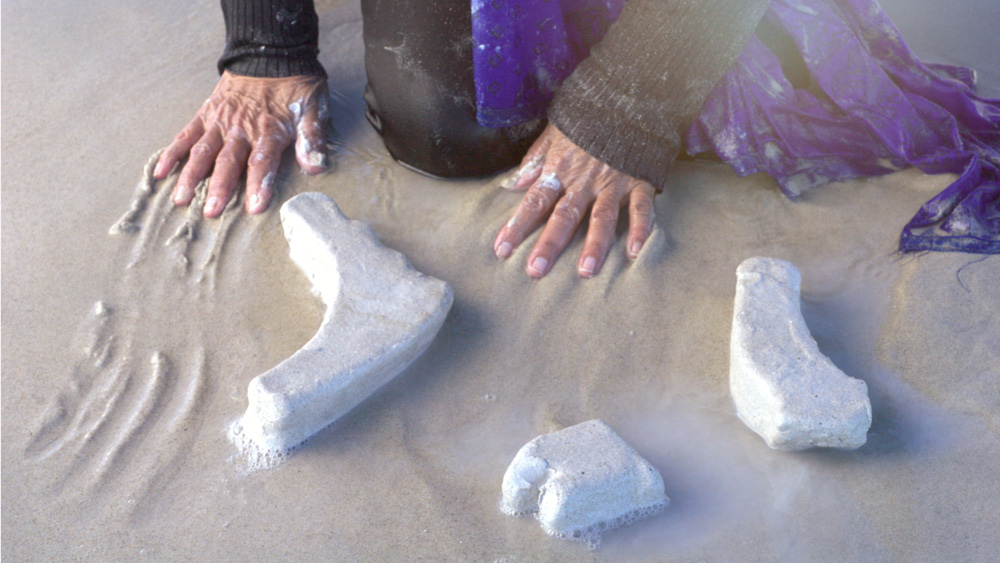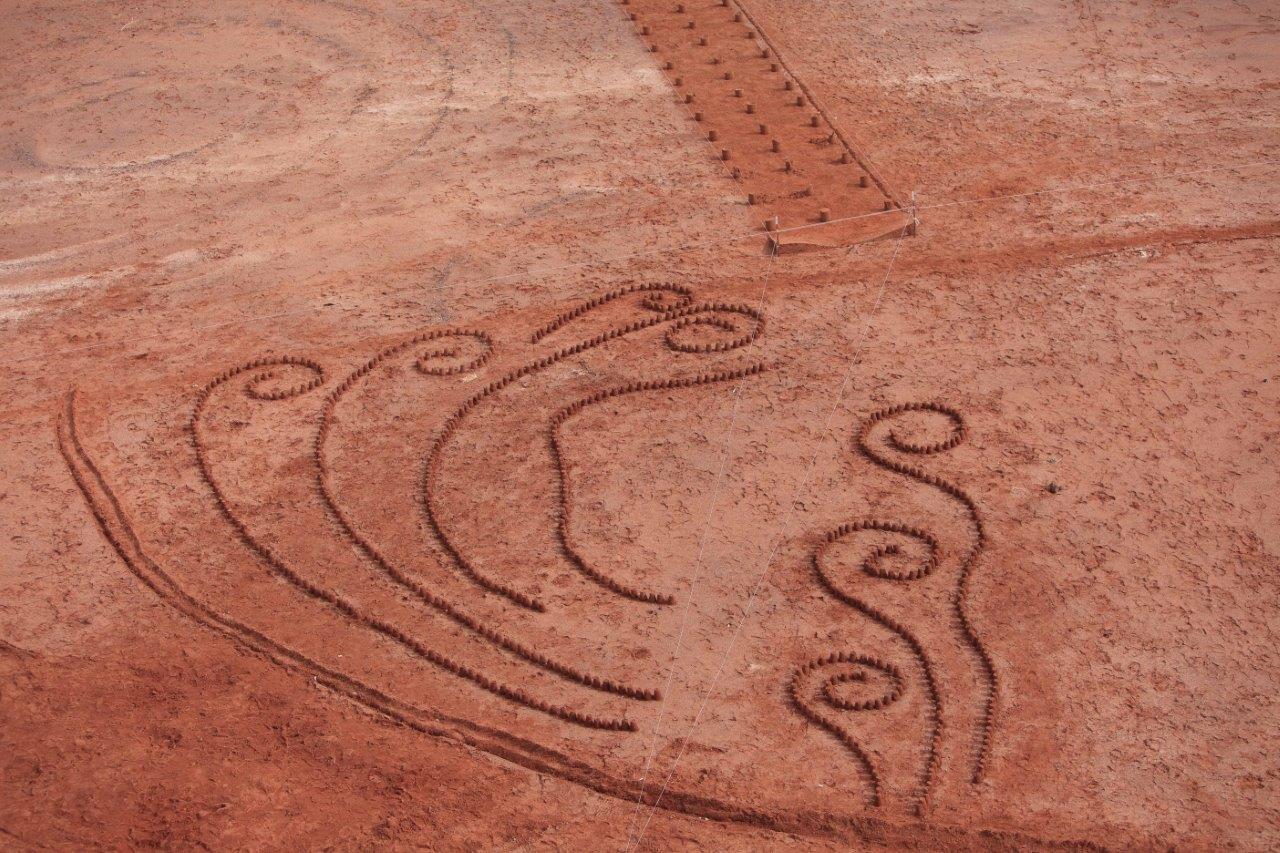
Ocean As A Garden
In The OCEAN AS A GARDEN, we present at Lost Eden Gallery two and three dimensional artworks as a critical investigation tracing the movement of Australian native plant and seed species, that botanists shipped to England in the 1800s, pressed in layers of paper or planted in Wardian type boxes, some never to arrive, fallen or discarded overboard they are now reimagined at the bottom of the ocean as a garden of sorts, as Symbiocene.
Having grown up near the banks of the Indian Ocean, the Kala Pani we learn how human activity impacted on the natural flow of water, listening to grandmothers and othermothers stories of ships leaving to and from Australia, Africa and India laden with ‘exotic’ birds and animals, seedlings of ‘foreign’ species as well as indentured labourers.
Exhibitions

Performing The River – Bilya Kwoba Koorliny
Performing The River is a sculptural artwork integrated on the walls of the Belmont City College Performing Arts Building. Conceptually, the sculpture is grounded by bringing
together two key elements – the act of performance embodied in the Performing Arts building and the Derbarl Yerrigan (Swan River) that contours, outlining and rendering across the Belmont landscape.
Public Art

…The Last Sky
The Last Sky … is a series of works in paper by artist Dr Audrey Fernandes-Satar first presented for the inaugural Art Meets Vet Sciences Artist in Residence at Murdoch University and the School of Veterinary and Biomedical Sciences.
Designed to encourage creative synergy between the artist and the staff and students at Murdoch School of Veterinary and Biomedical Sciences, this program had collaborative interaction and engagement as a core component to encourage the artist, staff and students alike to explore cross-disciplinary interactions, seek new perspectives, and inspire new ways of thinking.
A catalogue of Arts Meets Vet Sciences can be viewed here
Exhibitions

ERASURE/S
ERASURE/s is a multidisciplinary art project, uses drawing as a catalyst to unravel the artist’s autobiography – built upon the life experiences and memories of women’s work who have previously been silenced emerge, through the progression of performance ethnography that moves from Mimesis to Poesis, to Kinesis. in a gender conscious world.
Mimesis is a stop motion animation where thousands of charcoal drawings become the tools for the construction of the story, unraveling common representations of women ‘whose feet do not touch the earth’ (Kafh, 1999) with the sequencing of hard, mean work, the reality of many women in the artist’s family.
Exhibitions

From the Monumental
To the Miniature
Is a multichannel sound artwork triggered via motion sensors is located in the juxtaposition between the monumental and the miniature, to express how culture circulates and articulates, embedded within the architecture, the fibre of the Matagarup Bridge over the Derbal Yerrigan (Swan River, Perth Western Australia).
Public Art

Remembering Kala Pani
Remembering Kala Pani is an installation inspired by the ‘Tipu Tiger’ – the 3.5 million people who made the journey across the Kala Pani (the Indian Ocean), to live as indentured labourers and migrants in other lands
Exhibitions

Longing, Memory, Sight
The sculpture Longing, Memory, Sight explores the human histories of the ANZAC story. Representing a page from a notebook or letter at monumental scale, the work gestures to the written correspondence from Australian soldiers to their loved ones.
Public Art

Sites of Meaning
Sites of Meaning was an ephemeral land artwork, located upon the earth of the Cossack clay pans.
To develop the work, the artists worked closely with Aboriginal Traditional Owners, the Ngarluma Elders, to explore cultural narratives and experiences of place.
The resulting work graphically documents a story based on the four elements of Water, Air, Earth/Country and Life/Culture – dynamically referencing the history, people and landscape of place.
Community Art